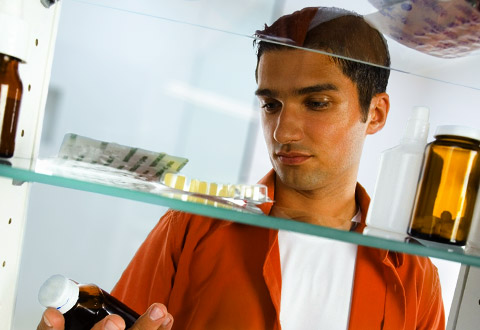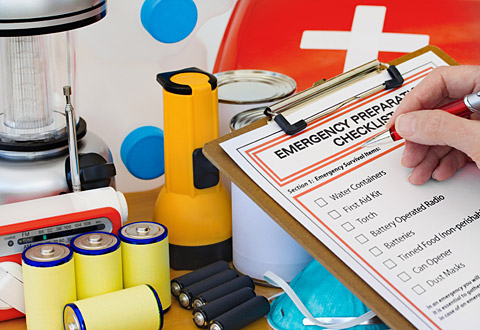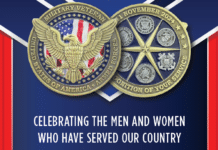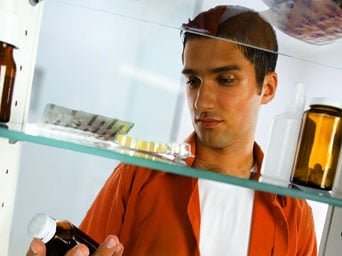
Do you have enough medication if your current supply ran out?
Veterans Receiving Health Care Need to be Prepared
Is your family prepared for hurricanes, earthquakes, tornados or floods?
If you’re a Veteran receiving VA health care, do you have enough medication if your current supply ran out and you couldn’t get to the drug store or your VA medical center?
September 2013 marks the tenth annual National Preparedness Month. VA and FEMA want to help you be ready…for anything and everything.
There are great checklists online at Ready.gov. Many Veterans have found that their kids and grandkids love having this as a project, for school or just for your family.
Start with this important checklist
In addition to your prescription medicines:
- Have you stocked up on other expendable health supplies?
- Do you have a backup plan for those who need care?
- Did you remember to keep a list of medications and other important health documents ready to go?
- Do you have emergency phone numbers at the ready? Doctor? VA hospital? Ambulance?
- Have you stocked up on plenty of food and water?
Emergency preparedness is no longer the sole concern of earthquake prone Californians and those who live in the middle part of the country known as ”Tornado Alley.“ For Americans, preparedness must now account for man-made disasters as well as natural ones. Knowing what to do during an emergency is an important part of being prepared and may make all the difference when seconds count.
Some of the things you can do to prepare for the unexpected, such as making an emergency supply kit and developing a family communications plan, are the same for both a natural or man-made emergency.
Learn about the emergency plans that have been established in your area by your state and local government.
Being prepared may make all the difference when seconds count.
People with Disabilities and Other Access Needs
In addition to Ready.gov’s recommended items to include in a basic emergency supply kit, people with disabilities and other access and functional needs may wish to consider the following in their preparations.
A special section of the Ready.gov website is dedicated to people with disabilities.
Now is the time to plan ahead for what you may need to stay safe, healthy, informed, mobile and independent during a disaster. Remember that a disaster may require sheltering-in-place at home or evacuating to an emergency shelter or other form of temporary housing.
As you prepare, consider all the strategies, services, devices, tools and techniques you use to live with a disability on a daily basis.
Consider family, neighbors, friends, people who provide services to you, faith-based and community groups. Tell these people where you keep your emergency supplies. Give at least one member of your support network a key to your house or apartment.
If you receive dialysis or other life sustaining medical treatment, identify the location and availability of more than one facility and work with your provider to develop your personal emergency plan. Show others how to operate your wheelchair or other assistive devices.
Keep in mind that during an emergency, you may need to explain to first responders and emergency officials that you need to evacuate and shelter with your family, service animal, caregiver, or personal assistance provider so they can provide the support you need to maintain your health, safety and independence.

Now is the time to plan ahead for what you may need to stay safe and healthy during a disaster.
Depending on your needs, items for your Go Kit may include:
- Extra eyeglasses or hearing aids
- Battery chargers and extra batteries for battery-operated medical or assistive technology devices
- Copies of medical prescriptions and doctors orders
- Medical alert tags or bracelets or written descriptions of your disability and support needs
- Supplies for your service animal
- Medical insurance cards, Medicare/Medicaid cards, physician contact information, list of your allergies and health history
- A list of personal contacts, family and friends that you may need to contact in an emergency
- If possible, extra medicine, oxygen, insulin, catheters, or other medical supplies you use regularly
Make a Plan
Your family may not be together when disaster strikes, so it is important to plan in advance:
- How you will contact one another?
- How you will get back together?
- What you will do in different situations?
Recommended Items to Include in a Basic Emergency Supply Kit:
- Water
- Food
- Flashlight and extra batteries
- First aid kit
- Can opener for food
- Local maps
- Cell phone with chargers, inverter or solar charger
Additional Items to Consider Adding to an Emergency Supply Kit:
- Prescription medications and glasses
- Infant formula and diapers
- Pet food and extra water for your pet
- Matches in a waterproof container
- Feminine supplies and personal hygiene items
- Mess kits, paper cups, plates and plastic utensils, paper towels
- Paper and pencil
Again, Ready.gov is a vast library of information (in 13 languages!). Check it out! Print it out! Tape it up inside your kitchen cabinets! You never know when you may need it.
– See more at: http://www.va.gov/health/NewsFeatures/2013/September/Being-Prepared-is-Smart.asp#sthash.8M8k84lo.dpuf
All content herein is owned by author exclusively. Expressed opinions are NOT necessarily the views of VNR, authors, affiliates, advertisers, sponsors, partners, technicians, or VT Network. Some content may be satirical in nature.
All images within are full responsibility of the author and NOT VNR.
Read Full Policy Notice - Comment Policy





























